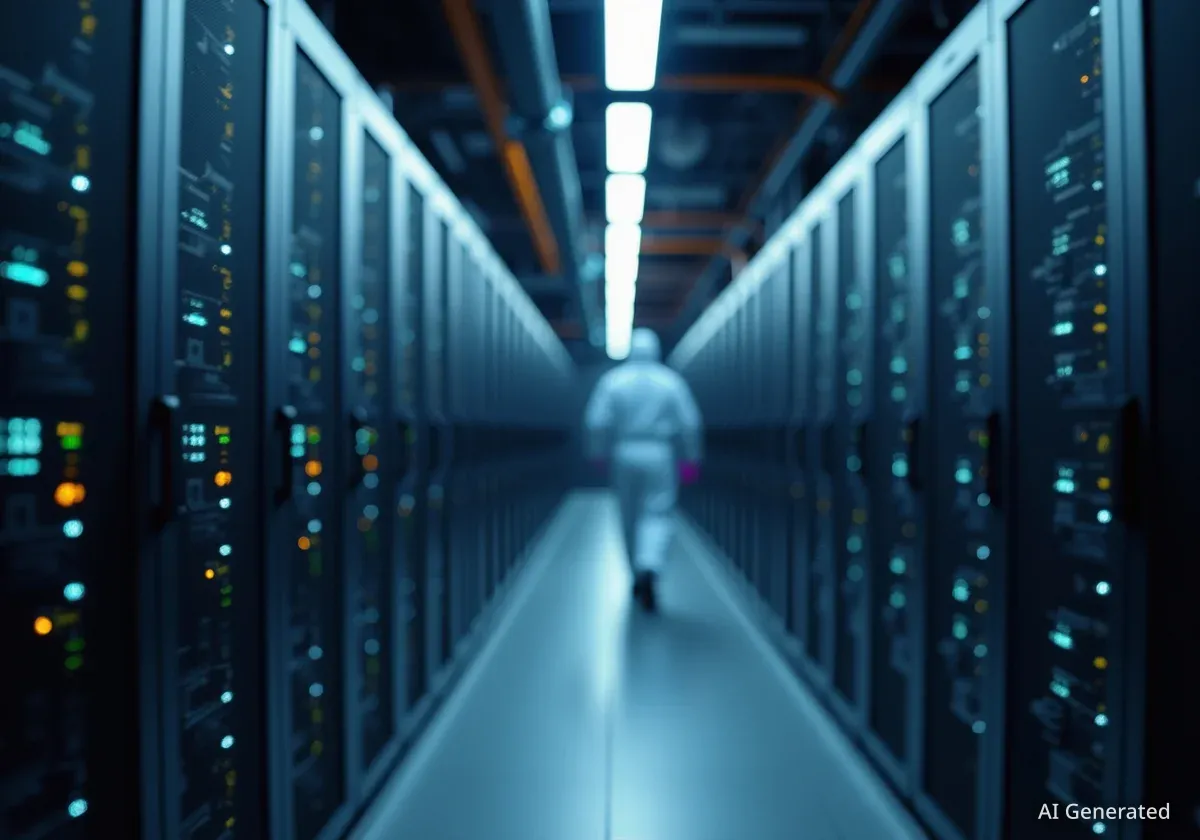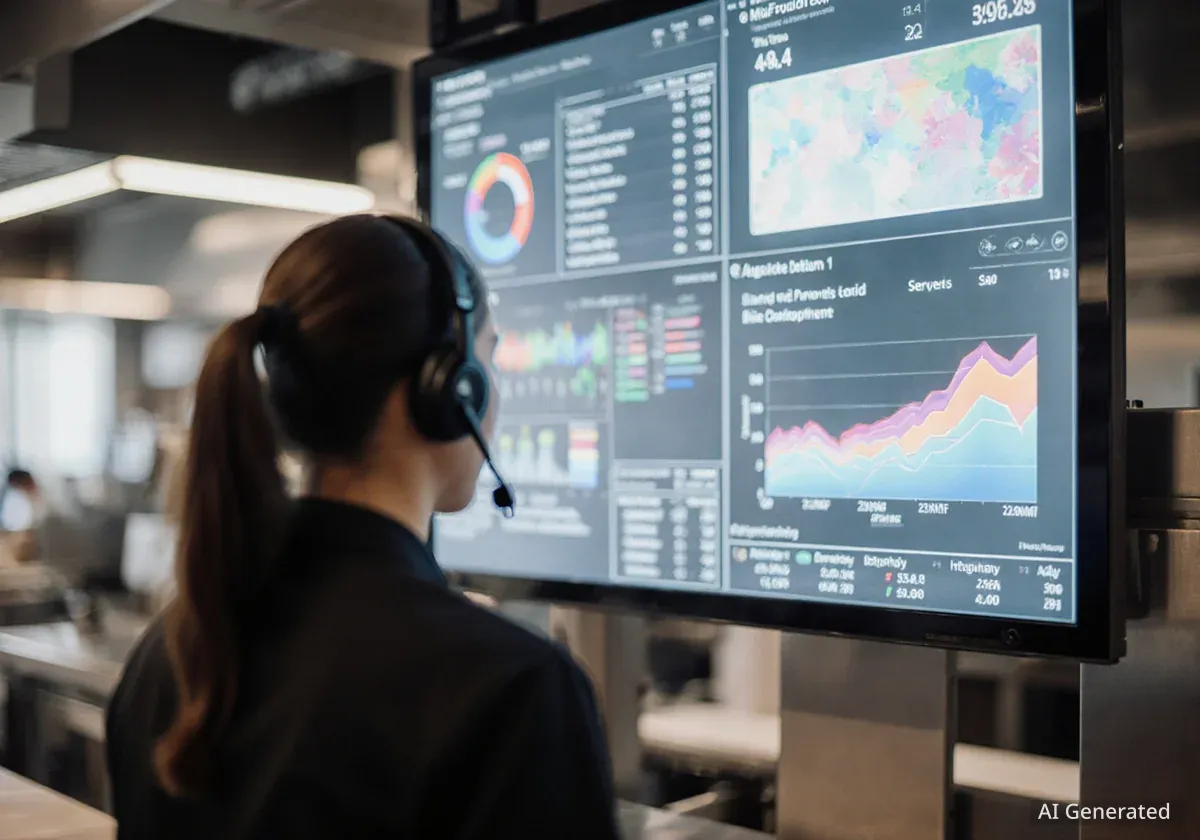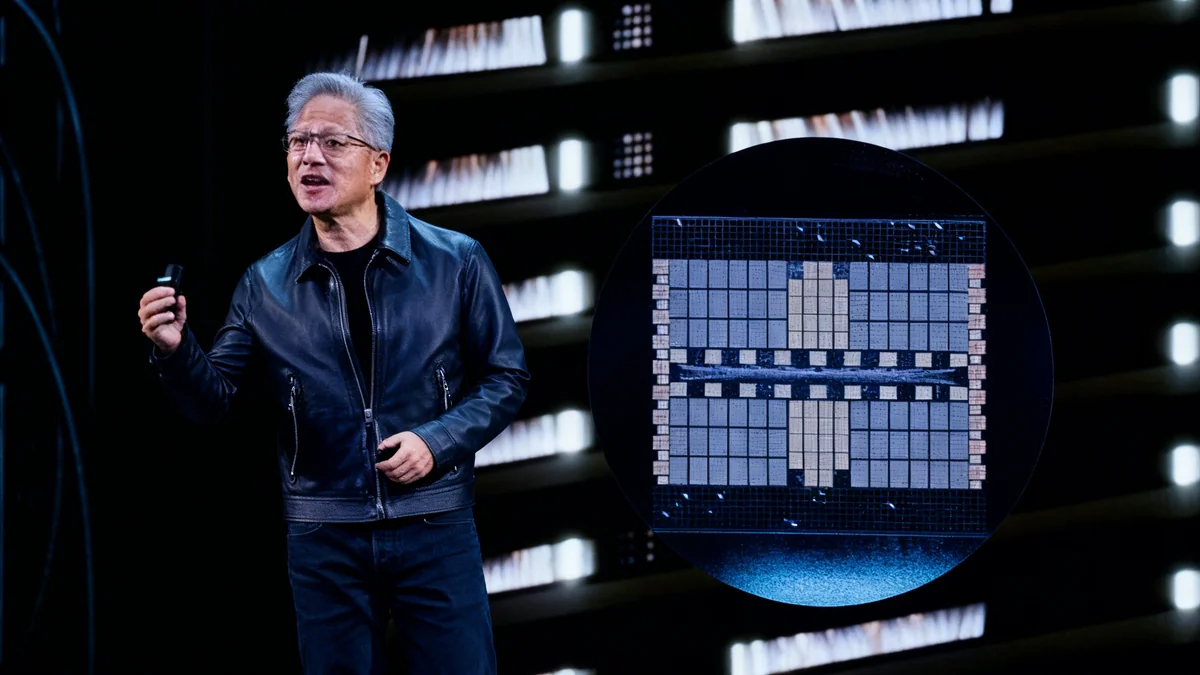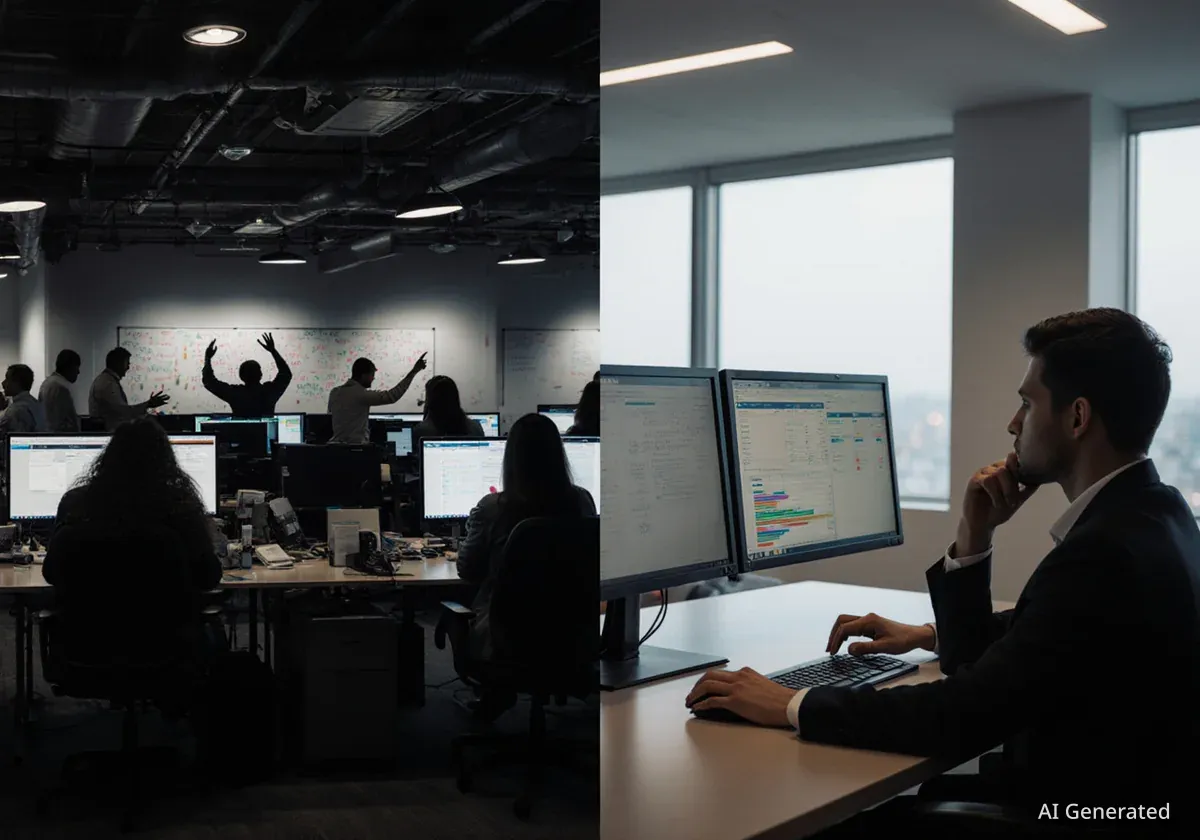Apple has begun shipping advanced artificial intelligence servers from a manufacturing facility in Houston, Texas. This development marks a significant step in the company's commitment to invest $600 billion in U.S. manufacturing and supply chains. The servers are crucial for powering Apple's new AI capabilities, including Apple Intelligence and Private Cloud Compute services.
Key Takeaways
- Apple has started shipping AI servers from its Houston factory.
- These servers are essential for Apple Intelligence and Private Cloud Compute.
- The move supports Apple's $600 billion U.S. investment commitment.
- The Houston facility is expected to create thousands of jobs.
- Apple is utilizing its own silicon in these new AI servers.
Accelerating Domestic Production for AI
The new Houston factory has ramped up production ahead of schedule. This acceleration highlights Apple's focus on bringing more manufacturing operations to the United States. The company's Chief Operating Officer, Sabih Khan, confirmed the early rollout.
Khan stated,
“Our teams have done an incredible job accelerating work to get the new Houston factory up and running ahead of schedule and we plan to continue expanding the facility to increase production next year.”This indicates Apple's intent to further boost its domestic production capabilities.
Quick Fact
The new AI servers from Houston utilize Apple's proprietary silicon, a key component in its advanced computing infrastructure.
Impact on U.S. Job Creation
Apple anticipates that the Houston facility will generate thousands of new jobs. This commitment aligns with broader efforts to strengthen the U.S. manufacturing sector and create employment opportunities within the technology industry.
Previously, Apple's servers were manufactured outside the United States. This shift to domestic production represents a notable change in the company's supply chain strategy for critical infrastructure.
Broader U.S. Investment Strategy
The server production in Houston is part of Apple's larger American Manufacturing Program. This initiative involves substantial investment across various sectors within the U.S. economy.
Background Information
In August, Apple CEO Tim Cook announced additional U.S. spending, particularly targeting semiconductor companies. This program aims to support domestic chip fabrication and packaging.
Apple's long-term vision includes enabling chips to be fabricated and packaged entirely within the U.S. This comprehensive approach underscores the company's dedication to developing an end-to-end supply chain domestically.
Partnerships and Training Initiatives
Beyond manufacturing facilities, Apple is also investing in workforce development. In July, the company launched a manufacturing academy in collaboration with Michigan State University. These partnerships are crucial for training the skilled labor force needed for advanced manufacturing.
Tim Cook has emphasized the importance of a global approach to manufacturing while simultaneously investing in domestic capabilities. He noted,
“You can add a lot by making it global and then stitching together the end-to-end supply chain in semiconductors. I can’t stress how important this is and how much that will add to what we’re doing.”
The Role of AI in Apple's Future
The servers produced in Houston are fundamental to Apple's AI strategy. Apple Intelligence, the company's personal intelligence system, relies on these powerful computing resources. Private Cloud Compute, another service, also benefits from this new infrastructure.
These services aim to offer users enhanced intelligence and privacy features across Apple's ecosystem. The domestic production of these servers ensures a secure and efficient foundation for these advanced technologies.
- Apple Intelligence integrates generative AI into core apps.
- Private Cloud Compute is designed to protect user privacy during AI processing.
- The shift to U.S. server production enhances supply chain resilience.
The expansion of the Houston facility is expected to continue into next year, further increasing production capacity. This ongoing investment signals Apple's sustained commitment to its U.S. manufacturing initiatives and its growing AI ambitions.
This strategic move not only impacts Apple's operational efficiency but also contributes to the broader U.S. technology landscape by fostering innovation and job growth in advanced manufacturing sectors.





